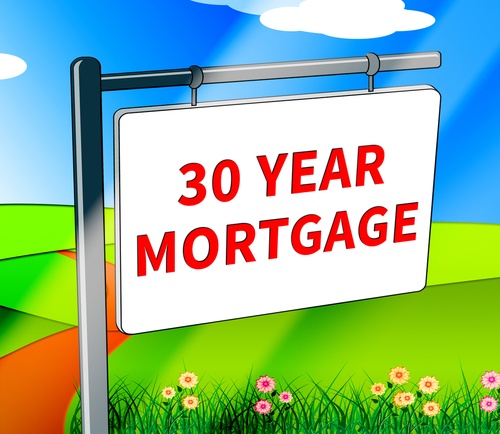5 Signs A 30 Year Mortgage Is Not For You

As far as mortgages go, one size doesn’t fit all, especially if that size happens to be the 30-year fixed rate mortgage.
But isn’t this mortgage the industry standard, the Federal Housing Administration standard, the gold standard since 1954? Sure.
But is this mortgage for everyone, for you? No. Why? After all, almost everyone you know highly regards this mortgage. In fact, many have one. True. So let’s first look at what attracts so many people to a 30-year mortgage.
Why Go for a 30-year Fixed Rate Mortgage?
Two reasons. One, the mortgage is affordable. Compared to, say, a 15-year fixed mortgage, a 30-year one burns a smaller hole in your wallet every month – half as small to be precise.
Two, the mortgage is predictable. Since you know how much interest and principal to pay each month, your heart never palpitates when you open the mortgage bill.
However, there’s more to 30-year fixed rate mortgage than just these two benefits. For instance, what if you move before the mortgage period expires? Or, you lack the down payment? What then? Let’s now consider these and more reasons why such a mortgage is not for you.
1. You Plan to Move
What is the point of having low monthly payments, fixed principal, and fixed interest if you have to move within a year or two of getting the mortgage? Fail to plan ahead, and you will eventually ask yourself this question.
But if you have to move and sell, first live in a house for at least five years. According to housing experts, this is enough time to recoup your investment. For less time, rent instead.
2. You Have no Down Payment
Without a 20% down payment, you will struggle to get a 30-year mortgage, if you get one at all. Unsympathetic lenders will smile at your mortgage application and, then, reject it.
Those who don’t will suggest you get private mortgage insurance first – just in case you default and foreclose.
Others still will suggest you put down 10% on an adjustable-rate mortgage, not a fixed-rate mortgage. The only sympathetic lender you find will be the Federal Housing Administration, demanding only a down payment of 3.5%. But by then, you will have already lost interest.
3. You Need Money
Sometimes, your financial plans – not the unsympathetic lenders – put your 30-year mortgage plans on hold.
Even though you have the 20% down payment, you also need capital to start a business or put in a 401(k). Or, you simply hate putting all your eggs in one basket.
Either way, you are not letting go of the purse strings – at least not all of them. In this case, go for an adjustable-rate mortgage. At the beginning, the lender will only demand the interest, not the principal, leaving you with enough cash with which to play around.
4. You Want to Build Equity
Sometimes, you get a mortgage knowing you will sell the house eventually in about 10 years or so. After doing your math, you realize short mortgage periods allow you to build home equity faster than long ones. Better yet, you pay less interest, saving you money.
Excited, you get a 15-year loan instead of a 30-year one. But while at it, ensure you revisit your math – a short loan comes with higher monthly payments. If they’re fine with you, go ahead.
5. You Will Soon Retire
Taking out a 30-year mortgage as you retire, an impractical move, bogs you down during your golden years. Who would want that, anyway? A short three- or five-year loan makes more sense, especially if you want to sell the property later or to rent it out.
Final Thoughts
The 30-year fixed loan – the industry standard – doesn’t suit you in the following cases. One, you plan to move less than 5 years after getting the mortgage.
Two, you lack the 20% down payment needed to get the loan approved. Three, you need money. Four, you want to build equity quickly. And finally, you will retire soon, so a loan will burden you.